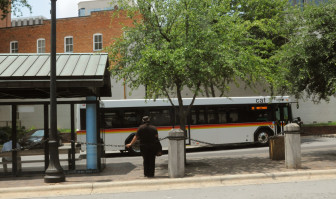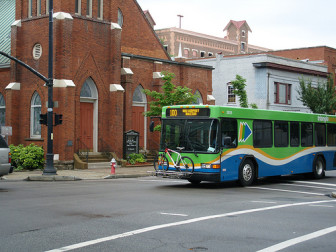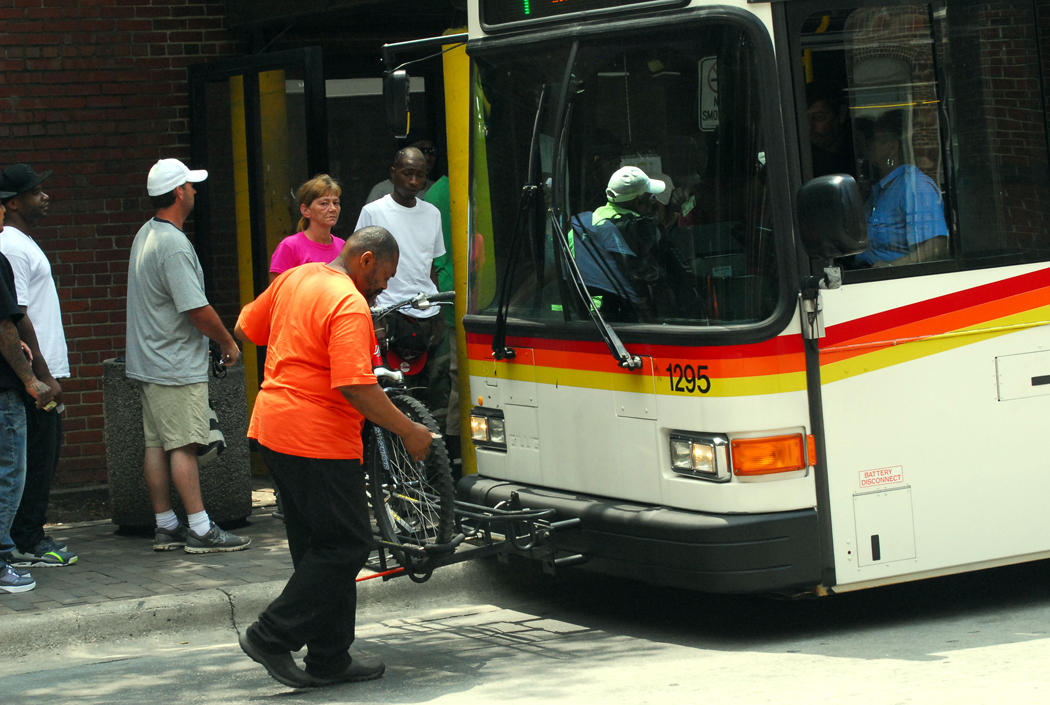Bus riders in Raleigh and the Triangle might have to dish out some extra cash next year.
Capital Area Transit (CAT) and the Triangle Transit Authority (TTA) are proposing fare increases in 2014 and 2015 to keep up with escalating operating costs and pay for new services and buses.
For local cash rides, fares could increase from $1 to $1.25 in 2014 and then again to $1.50 in 2015. Regional rides could increase from $2.00 to $2.25 in 2014 and then again to $2.50 in 2015.
Raleigh Transit Administrator David Eatman said if the new CAT fares are implemented Jan. 2 as proposed, the increase could provided about $1.4 million annually.
But, Eatman said, it’s unlikely that staff will be able to make it through the process by then. As with all fare increases, it’s likely that CAT will initially lose some riders before gaining them back.

Karen Tam / Raleigh Public Record
CAT hasn’t increased fares since January 2007, just before the recession began to take its toll on the Triangle.
In the past seven years, costs have continued to rise while CAT’s budget remained flat. Fuel, labor and maintenance costs have all gone up. In 2007 fuel cost the city $2.04 per gallon. It increased by about 53 percent to $3.12 in 2012.
“Even holding our budget steady, our ability to operate within the existing funding levels slowly began to deteriorate,” Eatman said. “I can’t think of anything that a consumer buys today costs the same today as it did in 2007.”
Triangle Transit Spokesman Brad Schulz wrote in an email to the Record that it has been about eight years since TTA increased its regional fares and more than three years since a rate increase was discussed with the Board of Trustees.
“Most of the costs of operating bus service are related to the wages and benefits of bus operators, supervisors, and mechanics,” wrote Schulz. “Salary increases and health insurance increases account for most of the growth in costs.”
Like CAT, fuel costs have played a role, Schulz said.

In the past, TTA has relied on federal funding to cover about 80 percent of the cost for new buses, but decreases in that funding will push the cost onto riders.
Schulz wrote TTA will need to replace 60 buses and 26 transit vehicles for customers with disabilities during the next 10 years.
CAT will also be replacing buses as well as making some route improvements in the coming year.
CAT and TTA will hold public workshops throughout the Triangle during November to collect feedback.
Eatman said the CAT board will then bring its recommendations to the City Council for final approval. Councilors could approve the fares as recommended or make changes as they see fit.
